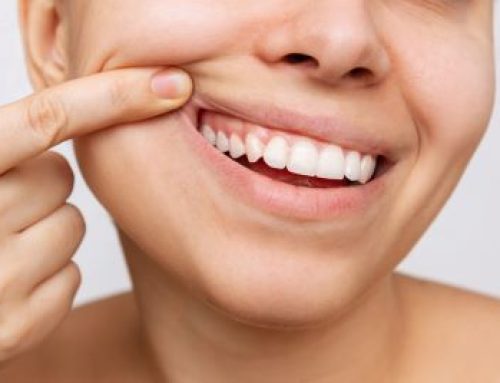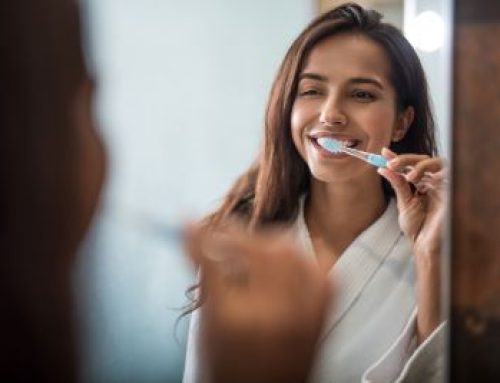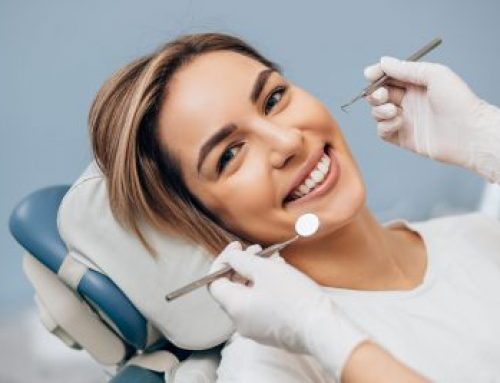 Consistently cleaning your teeth helps you keep and maintain a healthy, white smile! But that is not all it’s good for. There are almost endless good reasons why you should perform regular dental cleaning. Each time you visit your local dental professional for a teeth cleaning treatment, you greatly minimize your chance of gum disease, tooth decay as well as other dental problems.
Consistently cleaning your teeth helps you keep and maintain a healthy, white smile! But that is not all it’s good for. There are almost endless good reasons why you should perform regular dental cleaning. Each time you visit your local dental professional for a teeth cleaning treatment, you greatly minimize your chance of gum disease, tooth decay as well as other dental problems.
Plainly put, regular dental cleaning is imperative. Even if you are extremely careful about your teeth cleaning regimen, regular dental exams, as well as cleanings, can help you identify any unknown problems about your oral health. But how often should you carry out routine dental cleaning? As professionals in dental wellness, we are going to provide you with the necessary information about the importance of regular dental cleaning as well as how often you need to pay a visit to your local dentist.
So, why is routine dental cleaning important?
As previously mentioned, generally there are numerous health-related good reasons why you should conduct routine dental examinations as well as cleaning. Routinely cleaning your teeth is essential to your overall dental wellness, and basic health as well. In brief, here are a few of the persuasive reasons why you should regularly clean your teeth.
- Dental cleaning is also an ideal way to ensure your teeth stays free of discolorations, so you can still be extremely pleased of your pearly whites and confident smile!
- By frequently cleaning your teeth, you are essentially taking an important step towards enhancing the wellness of your teeth and gums. Gum disease is usually incredibly difficult to detect, but by using scheduled teeth cleaning, you can not only avoid gum disease but can also identify it earlier enough before it becomes a severe issue.
- As earlier mentioned, your all-around dental wellness has a direct effect on your general health. If you ignore your oral wellness, in some cases, this can easily lead to the development of severe health conditions, including heart disease as well as diabetes.
- Regular tooth cleaning has also been verified to help keep your teeth intact as it eliminates the build-up of both the tartar and plaque which frequently collects on your teeth’s outer layer with time. And in case you didn’t fully understand, it’s this build-up that can result in inevitable tooth decay or tooth loss.
So, just what should you expect from your scheduled dental cleaning appointment?
If you have never gone for a dental appointment, you may be wondering what to expect during your first ever dental cleaning visit. To put it simply, it’s an examination of your teeth as well as your all-around wellness. Here is how the whole process works:
A normal check-up:
Throughout your routine teeth cleaning visit, your dentist will have the time to closely examine your mouth and dental health for any visible potential issues. Your dentist will use miniature mirror-like devices to examine your teeth and gum wellness.
What’s more, your dentist will look for visible gingivitis symptoms, which may consist of gum inflammation, bleeding, and tenderness. He/she will equally try to identify other possible issues such as defective fillings as well as mouth sores.
As you can see, any dental check-up session allows your dentist to evaluate your overall dental health and diagnose possible problems before they become significant dental problems.
Tartar and plaque removal:
It is important to observe that this is usually the part of the dental cleaning appointment that consumes the most time. Your doctor will use a tool known as a scraper to get rid of any plaque build-up from the outer layer of your teeth. Furthermore, your dentist will access those hard-to-reach locations that you might overlook, even with frequent flossing.
Tartar pertains to a material that builds up if plaque is left to stay in your teeth for an prolonged time period. And once your dentist finishes getting rid of plaque, he will immediately search for tartar build-up signs. Furthermore, referred to as calculus, tartar develops when plaque mixes with saliva, which eventually hardens, forming tartar.
Tartar is generally brownish or yellowish and can quite easily lead to the development of significant dental problems such as receding gum lines and tooth loss.
Teeth flossing and polishing:
Once your dentist is through with tartar and plaque removal, he/she will then polish your teeth. To perform this treatment, the doctor applies gritty toothpaste and uses a rotating polishing device. And the slightly abrasive toothpaste equally helps remove any lingering tartar and plaque. After the polishing session, your pearly whites will get complete flossing. This helps remove any debris the toothpaste may have failed to remove during the polishing phase.
Throughout this process, your doctor will access the so-called hard-to-reach spots that might overlook. And if in any case, you experience gum bleeding in some locations, the dentist will present to you some practical and practical advice on how to enhance your dental health to control bleeding.
Dental care tips in-between check-ups:
There is normally lots of time that passes between your oral cleaning exams, and a lot can potentially occur during this period. And therefore you don’t want to ignore your oral care throughout this specific time to ensure your teeth remain in tip-top shape.
Some established tips consist of:
- Use a very good mouthwash that prevents the build-up of both bacteria and plaque.
- Make sure you thoroughly brush your teeth two times daily (day and night)
- Use a soft-bristled toothbrush and fluoride toothpaste.
- Floss more frequently, possibly at minimum once daily.
If you encounter anything odd about your dental health such as sudden gum pain or toothache, don’t hesitate to contact your dentist for help as soon as possible.
If you are searching for a dentist, HPS Advanced Dental Care would love to see you. Dr. Heather is gladly accepting new patients.
We are located at 4741 24 Mile Rd. Shelby Township, MI 48316, and we can be reached at (248) 652-0024. We look forward to meeting you!





